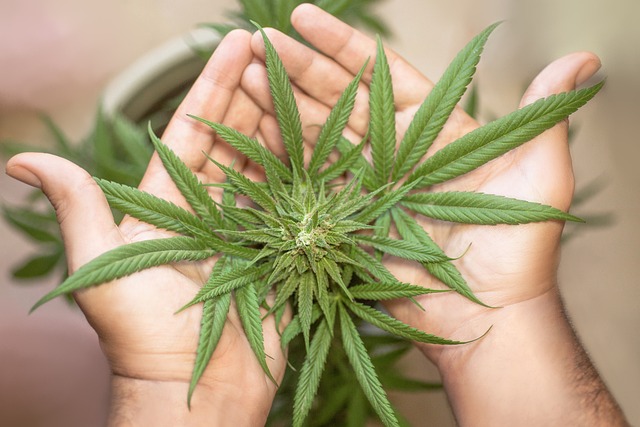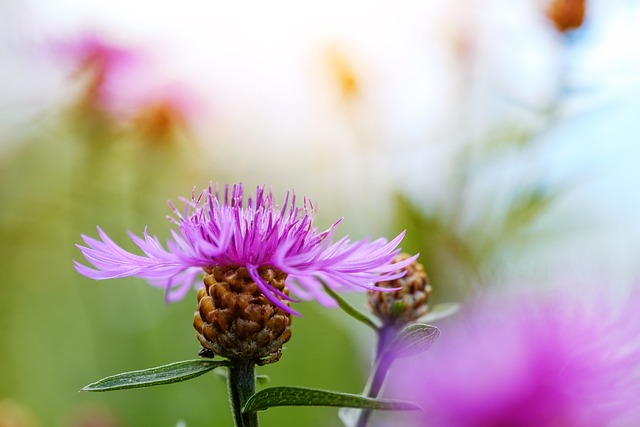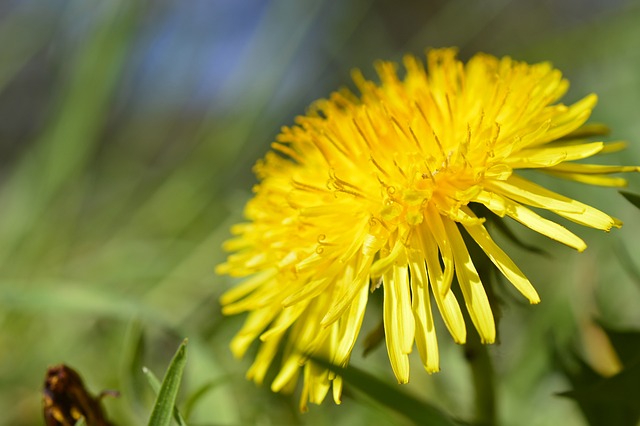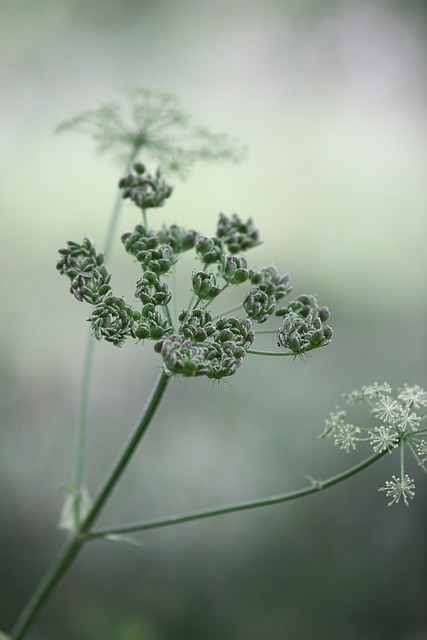2023 marks a significant milestone for THCA (tetrahydrocannabinolic acid), as it has been legally recognized in Maine for its potential therapeutic benefits, distinct from its psychoactive form THC. Maine's 2018 Adult Use Marijuana Bill allows adults to use, possess, and cultivate cannabis, including THCA flower, making it a pioneer in providing legal access to this non-psychoactive cannabinoid for wellness purposes. THCA has garnered attention for its anti-inflammatory and neuroprotective properties, with studies suggesting it may alleviate symptoms of neuropathic pain, multiple sclerosis, and inflammatory bowel disease. Consumers in Maine can legally consume THCA through various methods, including vaporization or direct ingestion via juicing or edibles, without experiencing psychoactive effects. It's crucial for users to adhere to state regulations and stay informed about the evolving legal status of THCA, as well as understand dosage and consult healthcare professionals before use, especially considering the variability of cannabis laws across different states within the U.S. Maine's regulated market ensures consumer access to high-quality THCA products, with a focus on maintaining health and safety standards for this emerging wellness alternative.
Explore the emergent landscape of THCA flower, a non-psychoactive precursor to THC found in cannabis sativa. This article delves into its burgeoning legal status in Maine, uncovering the nuances and implications for residents and enthusiasts alike. We’ll traverse the cultivation process that transforms seeds into potent THCA-rich flowers, elucidating their unique chemical composition and the potential therapeutic properties they hold. Additionally, we’ll guide you through various consumption methods, emphasizing safety considerations in the evolving legal framework surrounding THCA flower use. Join us as we dissect the intricacies of this natural compound within the boundaries of Maine’s legislative approach to cannabinoids.
- Unveiling THCA Flower: A Comprehensive Overview of its Legal Status in Maine
- The Chemical Makeup and Potential Benefits of Raw THCA
- Cultivation and Harvesting: The Journey from Seed to THCA-Rich Flower in Maine
- Consumption Methods and Safety Considerations for THCA Flower in a Legal Context
Unveiling THCA Flower: A Comprehensive Overview of its Legal Status in Maine

The THCA flower, rich in tetrahydrocannabinolic acid (THCA), a non-psychoactive cannabinoid found abundantly in raw cannabis plants, has garnered attention for its potential wellness benefits and legal status. In Maine, the evolving landscape of cannabis legislation has positioned THCA flower at an interesting juncture. As of recent legislation updates, THCA is legally distinct from its psychoactive counterpart, THC, which means products containing THCA can be sold and consumed within the state’s regulatory framework. This distinction allows consumers in Maine to legally access THCA flowers for their wellness properties without the psychoactive effects associated with THC. The 2018 Adult Use Marijuana Bill paved the way for recreational use, possession, and cultivation of cannabis, including THCA flower, by adults over 21 years old. However, it’s crucial for consumers to stay informed about local regulations, as municipalities within Maine may have their own ordinances governing its sale and consumption. Understanding the legal parameters is essential for anyone interested in incorporating THCA flower into their wellness routine, ensuring compliance with state laws while taking advantage of its burgeoning presence in the market.
The Chemical Makeup and Potential Benefits of Raw THCA

Raw THCA, or tetrahydrocannabinolic acid, is a naturally occurring compound found in the Cannabis sativa plant. It’s the precursor to THC, the psychoactive substance in cannabis that many are familiar with. THCA is non-psychoactive, which means it offers the potential benefits of cannabis without the high associated with its decarboxylated form, THC. As researchers continue to explore the therapeutic properties of cannabinoids, THCA has garnered attention for its anti-inflammatory, neuroprotective, and possible anti-nausea effects. Studies suggest that THCA may help alleviate symptoms associated with various conditions, including neuropathic pain, multiple sclerosis, and inflammatory bowel disease.
In the context of legal status, the consumption of raw THCA flower is a subject of ongoing regulation. As of my knowledge cutoff in 2023, THCA-rich products are legally permissible in Maine under its adult-use cannabis laws. The state has established a regulated market for both medical and recreational cannabis, which includes flowers that contain high levels of THCA. This legal clarity allows consumers in Maine to access raw THCA flowers and other related products for their potential wellness benefits, while also ensuring the products meet safety and quality standards. It’s important for consumers to stay informed about local regulations, as the legal landscape surrounding cannabis is subject to change and varies by state.
Cultivation and Harvesting: The Journey from Seed to THCA-Rich Flower in Maine

In Maine, the cultivation and harvesting of THCA-rich flowers have become a focal point within the state’s evolving approach to cannabis. As per the Maine Medical Use of Cannabis Program, patients with qualifying conditions are legally permitted to cultivate their own THCA-rich cannabis if they have obtained a registry card. This legal framework sets the stage for a meticulous process that begins with selecting genetically potent seeds or clones capable of producing high levels of THCA, the non-psychoactive precursor to THC found in raw cannabis flowers.
The journey from seed to THCA-rich flower is a delicate and precise one, demanding careful attention to the plant’s environmental needs. Maine’s unique climate provides both challenges and opportunities for cultivators. The extended growing season allows for optimal conditions for THCA production, provided that growers can navigate the variable weather patterns and soil types. Through the application of organic pest management practices and soil amendments, cultivators in Maine work diligently to ensure their plants thrive without compromising the integrity or potency of the THCA content. As the flowers mature, growers must carefully time the harvest to capture the peak concentration of THCA before it converts into THC upon drying and curing. This precise timing is crucial for those who use cannabis for therapeutic purposes, as raw THCA-rich flower offers different effects compared to its psychoactive counterpart. The end result is a testament to the skill and dedication of Maine’s cultivators, yielding a crop that complies with the state’s legal standards for THCA content in medical cannabis.
Consumption Methods and Safety Considerations for THCA Flower in a Legal Context

THCA, or tetrahydrocannabinolic acid, is a non-psychoactive cannabinoid found in raw cannabis plants, which, when heated, converts into THC, the primary psychoactive component of cannabis. As THCA remains legal in Maine under state law with regulations governing its use, consumers have various methods to consume THCA-rich flower. One popular method is vaporization, which allows for the preservation of THCA’s medicinal properties, as high heat can convert THCA into THC. Vaporizers offer a discreet and controlled way to inhale the desired cannabinoids without combustion, which is beneficial for those seeking the potential therapeutic effects of THCA without the psychoactive impact of its degraded form, THC.
Another consumption method is consuming raw or decarboxylated flower directly, often by juicing or infusing it into edibles. This method is less common but can be effective for those looking to experience the potential benefits of THCA without any psychoactive effects. It’s crucial to adhere to legal guidelines and dosage recommendations when using THCA flower. Safety considerations include understanding the legality of possession and consumption in one’s jurisdiction, as federal laws may differ from state laws like those in Maine. Additionally, it’s important to source THCA flower from reputable dispensaries or cultivators to ensure quality, purity, and safety. Consumers should also be aware of their individual health conditions and consult with a healthcare professional before incorporating THCA into their wellness routine, especially if they are taking other medications or have pre-existing health concerns. With the evolving legal landscape surrounding cannabis and its derivatives, staying informed about local regulations is essential for responsible and safe consumption.
In recent years, THCA flower has garnered attention within the cannabinoid community, particularly in Maine where its legal status has been clarified. This article has provided a thorough examination of THCA flower, from its chemical composition and potential health benefits to the meticulous cultivation practices employed in Maine to produce this raw cannabinoid. Understanding the consumption methods and safety considerations is paramount for those seeking to engage with THCA flower legally. As Maine continues to shape its approach to cannabis-related products, the exploration of THCA’s legal standing within the state offers a glimpse into the broader implications of cannabis policy nationwide. With the wealth of information presented, it is evident that THCA flower holds significant potential, both for individual well-being and as an agricultural product within Maine’s evolving market.
